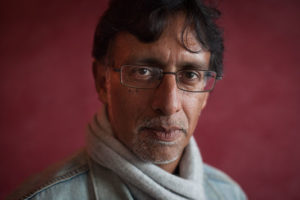 “How do you govern a country with 264 types of cheese?” Charles De Gaulle once reportedly snarked, proving that you don’t have to be a foreigner to be at least somewhat mystified by France. But every so often, even those foreigners eventually have an “Aha!” moment, a brief glimpse into something shadowed and inscrutable.
“How do you govern a country with 264 types of cheese?” Charles De Gaulle once reportedly snarked, proving that you don’t have to be a foreigner to be at least somewhat mystified by France. But every so often, even those foreigners eventually have an “Aha!” moment, a brief glimpse into something shadowed and inscrutable.
I’ve had two such moments: The first was when I received a letter from La Poste—so, delivered to my address—telling me that the post office was unable to deliver a package I had ordered from Amazon because it didn’t recognize my address. The second came nearly a year later, while watching Des Paroles et Des Actes, a political show known for the marathon of incisive questioning it throws at politicians. On this particular episode, the French philosopher Alain Finkielkraut—who was there to debate the left-wing Daniel Cohn-Bendit, a revolutionary son of May 1968—began the show by pulling out a reproduction of a painting by the late 19th century Nabi Edouard Vuillard, of a woman standing in a corridor, bathed in golden yellow light. The painting, Finkielkraut said, symbolized France because the nation was “an incarnation of the feminine,” and hence its intransigence in banning the burka.
You don’t have to agree with Finkielkraut to appreciate the moment as quintessentially French. Sudhir Hazareesingh, a French historian who teaches at Oxford and author of How the French Think: An Affectionate Portrait of an Intellectual People, certainly doesn’t. “If he just stuck to literature, he would be great,” Hazareesingh laments. “Instead of peddling this dark, gloomy, pessimistic, self-pitying nationalism.” But in that moment, Finkielkraut incarnated what Hazareesingh devotes a book to meticulously detailing. If that book’s sweeping argument were crystallized in a few short sentences, it might go something like this: France still believes in the intrinsic value of ideas and in the public intellectuals that engage them. Along with the mythical place of résistance, this is a fundamental part of France’s national self-identity. And one of its great malheurs is that it still cares about ideas in a world that is often too busy to stop and think.
We’re sitting in a relatively noisy café at the London School of Economics, drinking coffee that grazes the upper tier of mediocre, when I ask Hazareesingh if Des Paroles et Des Actes is a window into something that France holds on to and won’t let go of. He looks exactly the way you might imagine an Oxford professor to look—trimmed beard flecked with grey, blue tweed jacket with elbow patches. “France has this kind of intellectual, literary tradition that goes back to the late middle age-early modern period, whose high tide is the Enlightenment,” he answers. “All the great writers are also philosophers—there is no separation between Voltaire and Rousseau, who are not just writers, but also people who have grand theories about how society should be. And of course that goes on to shape the French Revolution and Republican tradition in the nineteenth century.”
Hazareesingh pauses and mentions one of his own moments of feeling like he suddenly just understood. He was at a funeral for a Gaullist leader, a figure from the French Resistance, who was lying in state at the Hôtel des Invalides, when “watching them conduct the ceremony, with the President and Prime Minister as well as people of very different political views—from extreme right to extreme left—celebrate the idea of resistance,” a piece of France became tangible for him. “They see themselves as a nation of resistance,” he says, “And it is something fundamental to their identity and values.”
Philosophy, revolution. Words, acts. The Cartesian poles of French identity?
***************
The “eldest daughter of the Church” surged out of its Revolution with an almost missionary zeal about the ideas and values it suddenly wanted to proselytize to the Old Continent, and eventually to the rest of the world. Across the narrow watery bulwark of England, France’s rising universalism frightened Edmund Burke. He looked out at his country’s ancient rival and saw “a vast, tremendous, unformed spectre, in a far more terrific guise than any which ever yet have overpowered the imagination and subdued the fortitude of man.”
Few today would share Burke’s trepidation—even if there are still a few “restorationists” left in France who dream of the return of monarchy—preferring instead the French Revolution that has been mythologized in hymn and hue as a birthing of rights, liberties, and the sovereignty of the people. But Burke wasn’t wrong about the universalist character that he perceived, a quality that another nation in the world has shared—the United States.
“A comparison with America is appropriate insofar as they both see themselves as countries that, since their revolution, have a universal vocation,” Hazareesingh says when I bring up the potential similarity. “But the American Revolution didn’t start like that,” he points out. “It’s particularly with the rise of American power after 1945 that the United States has seen itself as a beacon for the promotion of liberal values around the world.”
French universalism, on the other hand, is much older. The Marquis de Condorcet, making use of a new word that had just entered the French language, wrote that “all the nations should one day reach the state of civilization at which the most enlightened peoples…such as the French…have already attained.” The idea of spreading enlightenment—“Ce qui est bon pour les français est bon pour tout le monde”—was as much a part of Napoleon’s motivations as desire for glory. Napoleon didn’t just want to amass an empire for France, he wanted to make the whole world French.
Maybe part of that is because the underlying French universal hasn’t historically been only about values, but about philosophy, and also language itself. In How the French Think, Hazareesingh writes about Louis-Sébastien Mercier, an 18th century writer who thought that his language was the one of “universal reason,” and thus perfectly fit to be the universal language in his futuristic utopian novel The Year 2440. Mercier wasn’t alone. Antoine de Rivarol, a linguist writing around the same time, went even further, declaring French to be the language of reason because its grammatical order reproduced the logical order of reality, and because its pronunciation—sweet, soft, gracious—was “marked by the French character.” It wasn’t enough for French to be merely the language of France, Rivarol wrote, because it was “the human language.”
Unfortunately for Mercier and Rivarol, the language well on its way to becoming the human one is not French, but English—something that has caused no small amount of consternation among the venerable Académie Française and conservative lovers of language like Finkielkraut. If the French have a reputation for modern day melancholy and a stereotype for national listlessness, the displacement of their language as the world’s, well, lingua franca, undoubtedly plays a role.
Yet, like France, the United States also obsesses over its own possible decline. Hazareesingh attributes this to the idea of universal mission. When you think that you have values—or even a language—that you think everyone else should share, you go through cycles, waves of optimism and decline, he explains. He also addresses this in How The French Think, writing, “An enduring source of French pride is that their history and culture have decisively shaped the values and ideals of other nations,” and then comparing the “grandiose declarations” of superiority that both France and the United States engage in, which for him in some ways hides an “almost ineffable fragility of spirit.”
Hazareesingh makes another comparison between the United States and France. In the 1970s, he says, the US was called out of a morose mindset by the “morning in America” message of Ronald Reagan. (Hazareesingh, who situates himself on the political left, doesn’t intend that as an endorsement of the economic policies Reagan promoted.) He thinks that the French political landscape could be propitious for a Reagan-like leader to emerge in that sense of a call to optimism. “In France one person who makes it to the top has extraordinary power to shape the collective narrative in the way that he wants. The last person who tried was Sarkozy, who wanted to remake France in a different way, though he didn’t think it through. He was impulsive and impetuous.”
For now though, potential remains potential. Hazareesingh sees no collective vision emerging that could bring forth a more optimistic Républicanisme. “That idea used to be the European project,” he says, “Which France was a leader in building.” And which at the moment is teetering on multiple edges.
Somewhere in those centuries of philosophy and revolution, of words and acts, is there an answer to the question of a uniquely French way forward?
***************
Perhaps that way is a reengagement with “solidarity.” In 1896, Leon Bourgeois, a high ranking bureaucrat, published a short essay that laid out his thoughts on how to resolve the “social question,” the struggle between economic liberalism and socialism that had lain at the heart of the French Republic since 1848. He titled it Solidarité. Hazareesingh looks almost startled, but happily so, when I bring up Bourgeois, who won the Nobel Peace Prize in 1920. “Solidarity as a concept is the late 19th century version of the revolutionary ideal of fraternity,” he says. It centers on an evolution of the idea that citizens don’t just have rights vis-à-vis the state, but duties and obligations as well.
Both a political and philosophic work, Solidarité argued that cooperation, not competition, was the prime mover of human nature. We naturally exist in intricately interdependent ways, and so we each have an implicit obligation to the embodiment of that interdependence—society. We are born into society, and therefore born with a debt towards the previous generations and the contemporaries who have helped to build it. We can only truly be free when we pay that debt forward to following generations by contributing to human progress. For Bourgeois, we cannot help but live our lives, in a way, on the shoulders of giants.
It’s curious then, that Bourgeois is entirely absent from How The French Think, especially given the lip service that public policy in France continues to pay to the word ‘solidarity’ itself. Welfare payments are called the revenu de solidarité active, there is a taxe de solidarité on airplane tickets as well as a taxe de solidarité additionnelle on certain health mutuals, and dozens of things from government volunteer programs to NGOs have some derivative of “solidarity” in their title.
“If you look at the amount that is spent on health, at the high level of taxation, that shows that the idea is still alive,” Hazareesingh says. The trouble though, he continues, is twofold. The first is whether, with government spending already at some of the highest levels in the OECD, further economic solidarity can really be the basis for a comprehensive modern political philosophy. “Everyone agrees not to become laissez-faire, but how far can that keep going?” Hazareesingh asks rhetorically.
The second, and perhaps more worrying, is that in a 21st century France, social solidarity seems to be running head first into modern interpretations of another philosophy born of the Revolution—laïcité.
***************
Undoubtedly, laïcité in France is no mirror image of American-style secular government. The latter tilted heavily in favour of protecting religious practice from government interference; while the former was equally concerned with curbing the power of the Catholic Church over the functioning of the state. But in the past two decades, some observers of France, like Hazareesingh, have seen laïcité become something else—weaponized into an antagonistic almost-ideology. Something more like laïcisme.
In 2015, Slate France published an article titled “Laïcité Must Be Saved From Laïcistes,” which called into question secularism’s gradual transformation. “Today, an instrasigent laïcité reinterprets the law of separation of Church and State of 1905 and turns it into a law of combat against religion,” the journalist Henri Tinq writes, “Which is historically false.” Yet for both the far left and the far right—Marine Le Pen, in particular, has used vigorous defence of laïcité as a way to rehabilitate the Front National’s image—secularism “has become about the expulsion of religion from everywhere but the private sphere and the home; religion in general is seen as not republican,” Hazareesingh says.
He reaches for the 19th century essayist, Emile de Montegut, in order to broach the connection between France’s love of abstraction and the present day problems associated with integration and laïcité: “There is no people among whom abstract ideas have played such a great role, whose history is rife with such formidable philosophical tendencies, and where individuals are so oblivious to facts and possessed to such a high degree with a rage for abstractions.”
The problem with such an intense focus on the abstract is that it makes it difficult to “conceptualize the particular,” or in the case of integration, legitimize diversity. In the abstract, the Republic acts as an enormous tricolore rug, pushing out of view everything that it covers. Indeed, the French state itself is restricted from collecting any statistic about race or religion; French is French is French. Identity then becomes a binary question of French or, rather than French and, with a Republican rug that obscures nothing, but is composed of everything.
***************
In a few minutes Hazareesingh is scheduled to give a talk titled, “Whither France?” but I can tell that he isn’t really that pessimistic; he often ends his articles by mentioning that regeneration is as French as Descartes. Few nations have truly produced their own terroir of thought, as France has. Maybe the analogy extends even further. Maybe ideas are like grapes, and the next grand cru of French philosophy, the one that will synthesize an answer to the formidable social questions facing the nation in a uniquely French way, is just reaching maturity in the oak casks of young French minds.
Alexander Hurst is a graduate student in International Relations at the London School of Economics and Sciences Po in Paris. He has also written for, among others, The New Republic and Lobelog.
This post may contain affiliate links.







